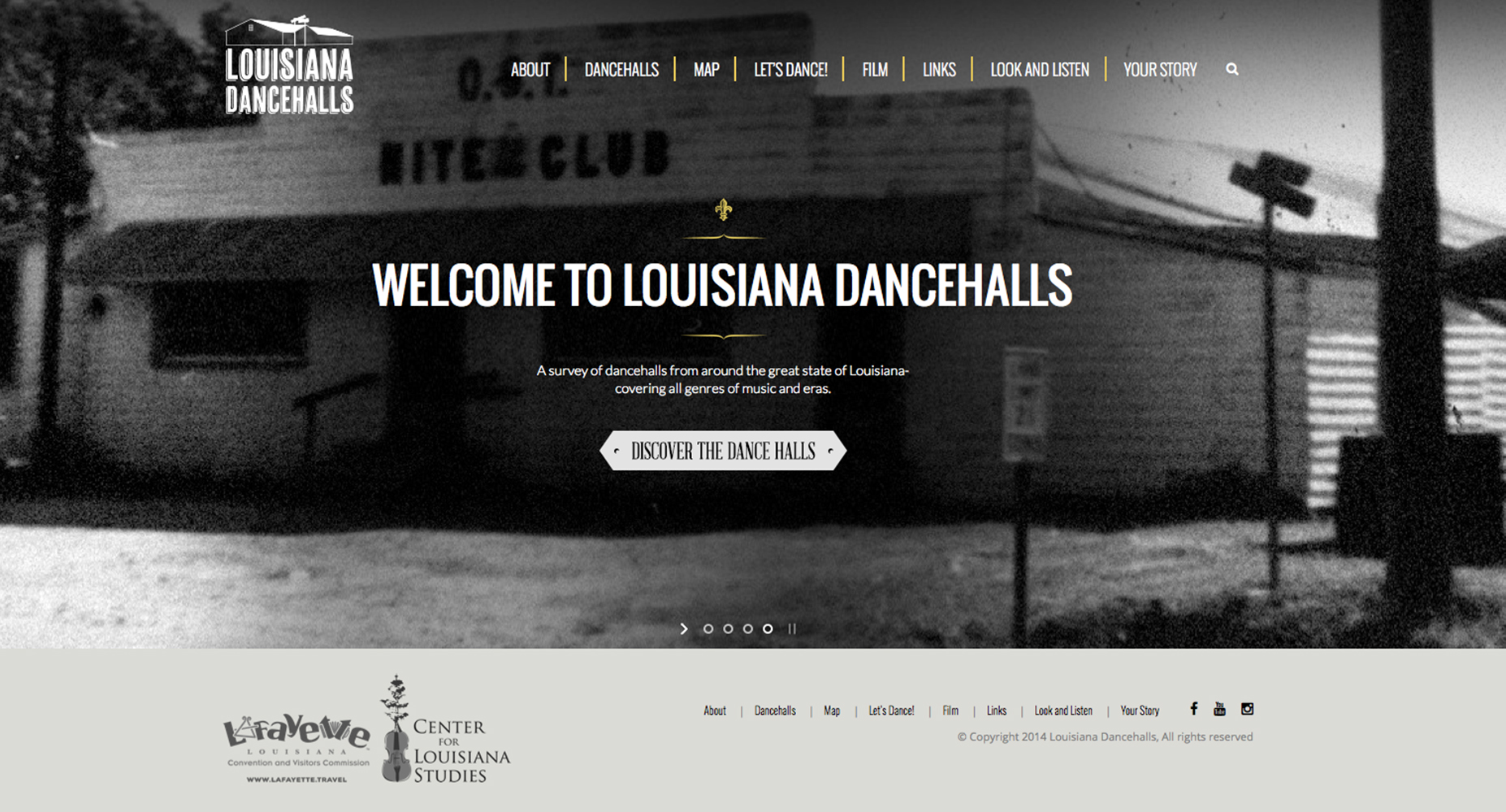John Sharp is piecing together the story of Louisiana dance halls one anecdote, grainy black and white photo, and playbill at a time.
A folklorist, he is assistant director for research at the Center for Louisiana Studies.
For about a year and a half, he’s sifted through old newspapers, scoured library archives, gathered oral histories, and collected photographs. He’s interviewed musicians, dancers, club owners, and historians, and gleaned info from comment sections on websites and social media.
The result is LouisianaDancehalls.com, a website that contains information about more than 1,500 dance halls, past and present. It also has a feature that allows visitors to submit their personal stories and photos about the halls, their owners, and musicians who played them.
“It’s not a finished project, but a framework or antenna for attracting additional information and images about these much-loved establishments,” Sharp explained.
The website is being funded by the Lafayette Convention and Visitors Commission, which developed a tourism brochure based on Sharp’s research.
His work on the website is part of larger effort to document and preserve the history of what he describes as “the great cultural phenomenon that is the Louisiana dance hall.” Sharp is also completing a full-length documentary entitled "Dancehalls of Louisiana." It’s funded with $20,000 awarded in 2012 by the Louisiana Filmmakers Grant Fund Program. He hopes to have the documentary ready to screen by the end of this year.
“In the midst of working on the film, I realized that I was compiling all of this information that had never been in one place before,” he said.
Many are only memories, but dance halls once were more than simply a place to kick up your heels on a Saturday night.
Dance halls were community hubs, places where entire families often gathered. Adults danced, and traded news and gossip. Children often played outside, where there might be barbecuing and games. “Their heyday in Louisiana was from about World War II until roughly the late 1960s,” Sharp said.
Dance halls already listed on the site can be searched by name, parish, or city. Entries include photos and contact information.
The site also contains a digitized map pinpointing the geographical distribution of dance halls.
To learn more about LouisianaDancehalls.com or the Center for Louisiana Studies, contact Sharp at (337) 482-1320 or johnsharp@louisiana.edu.
